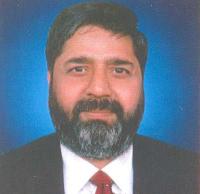

The Uttar Pradesh Assembly elections for which the process got underway with the announcement of the poll schedule on January 8, hold great importance for the residents of Jammu and Kashmir, as its outcome will determine the calendar of the much-awaited elections in the Union Territory in 2022
The overall performance of the ruling BJP, ruling at the Centre and UP, is seen as one of the critical factors to determine as to when the elections in Kashmir will be held. The dates of the polls in J&K hold extraordinary importance because of the national vision that the Centre wants Kashmir to be seen at the national and international levels. Both the angles cannot be ruled out because of what Kashmir stands for the whole of the country and how it resonates in the ecosystem in some of the countries in the neighbourhood and elsewhere, particularly in the west.
Three different scenarios are being visualized about the BJP and the UP elections and the outcome thereof. First, as the BJP claims, it will score a better majority than the previous poll performance of 2017- 312 seats. This scenario, which is backed and propagated by the saffron party, on the basis of what it calls, the outstanding performance of the Yogi Adityanath government in the state, and that of Narendra Modi government at the Centre. It is more appropriate to say that it is wish list of the BJP, and as far as the party is concerned, there can be no quarrel with its self-belief.
Second is the widely held view that BJP would just scrape through, that is, it will either have an ice thin majority in the House of 403, as the Samajwadi Party appears to be regaining its ground. That, it is being anticipated, in a state where caste equation and alliance of the castes play a crucial role in the polls. This, political circles believe in Jammu and Kashmir, will make the ruling party at the Centre, to think twice before holding elections in Kashmir. The second prism scenario would reveal, how much the voter in UP where religious polarization is all set to play a role in determining mood of the people. It will also show that how Hindus, who are as much victims of the economic hardships as other communities, will vote. Any dent in the voting pattern of the community, seen along with the voting preferences of Muslims, will be watched very closely in Kashmir- one of the most important Muslim -majority regions in the country. It draws its significance from the international attention that it evokes because of its strategic importance and the conflict it is experiencing for the past 32 years. This will be a pure communal way of looking at the polls and the outcome. In that scenario,, the elections in J&K would depend on whether the BJP would want to go ahead with the polls immediately after the UP poll results to avert negative impact of UP poll patterns in Jammu and Kashmir.
Jammu and Kashmir, in BJP’s calculus, is no less significant than Uttar Pradesh. The party itself is responsible for such an outlook, where the most populous state of the country, which sends 80 seats to the Parliament as compared to six from J&K, have been brought at par with each other. One determines the political temperature in Hindi heartland, the other shows how vibrant is the Indian democracy in a Union Territory where, the BJP government at the Centre, effected, in its own lexicon, “ historical changes”. These changes, brought about on August 5, 2019, and the subsequent extension of the central laws, and alteration in the ways to which the erstwhile permanent residents of once upon special status state of Jammu and Kashmir, were used to prior to abrogation of Article 370, synonymous with special status and privileges of the people of the former state. It will experiment with the elections in J&K only when it is certain that it would be winning a majority on its own or with the help of the allies. The party is responsible for putting extra focus on the elections in Jammu and Kashmir, as the world community would be watching it keenly that how far the August 5 changes have been accepted by the population.
The third scenario, though looks quite unlikely, victory of the opposition parties in U P. In that case, the polls in Jammu and Kashmir, it is feared will have to wait for a much longer period than being estimated at this time. Therefore, for BJP, to sustain its discourse on Kashmir, it is nothing short of national necessity to win polls in Uttar Pradesh.
Arun Joshi is a Senior Journalist, Political Analyst based in Jammu and Kashmir. He has authored four books, including, “Eyewitness Kashmir: Teetering on Nuclear War”. He has worked with Hindustan Times, The Times of India, The Indian Express and The Tribune, and visited several countries to deliver lectures on Kashmir issue and international affairs.
Views expressed are personal



